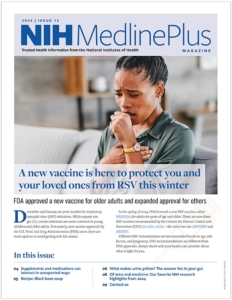Webinar
Livestreamed Wednesday, June 25, 2025
Registrants will receive an email with a link to access the webinar after completion of registration.
Description
Growing public expectations and the new factor-based grant application review criteria for most research project grant activity codes significantly raise the bar for clinical trials. NIH leaders repeatedly underscore the expectation that science, especially publicly funded research, should be replicable and generalizable.
The aims of this webinar are the following:
- to identify the most significant threats to the integrity and reproducibility of clinical trials
- to offer the latest recommendations for prevention of serious quality defects
- to recommend designs for reproducible, generalizable, and informative clinical research
This webinar is developed to support clinical researchers and their teams, teachers of reproducibility in research education and mentored research career development programs, research universities and institutions, industry supported researchers, and funders of research projects in life sciences.
With thanks to our sponsors
Welcome and Goals
Andrew Balas, MD, PhD, President, Friends of the NLM
(Biomedical Research Innovation Laboratory, Augusta University)
Evolution of expectations from randomized clinical trials
Scott Podolsky, MD (Harvard University)
What makes a clinical trial an (un)reliable source of evidence?
Gordon Guyatt, PhD (McMaster University)
Q/A
STANDARDS, PLATFORMS, AND QUALITY CONTROL PANEL
Introduction
Recent updates and expectations of the CONSORT, SPIRIT, and PRISMA guidelines
David Moher, PhD, FRSC, FCAHS (University of Ottawa)
Advanced information platforms for conducting quality clinical trials
Derk Arts, MD, PhD (Castor, New York-Amsterdam)
Persistence and trial quality control in low resource environments
James Berkley, MBBS, MTropMed, MRCP, MD, FRCPCH, FMedSci (KEMRI | Wellcome Trust)
Methods, data and software transparency for clinical trials
Nicholas DeVito, PhD (Bennett Institute for Applied Data Science, Oxford)
Q/A




 Andrew Balas MD, PhD
Andrew Balas MD, PhD Derk Arts MD, PhD
Derk Arts MD, PhD Gordon Guyatt PhD
Gordon Guyatt PhD James Berkley MBBS, MTropMed, MRCP, MD, FRCPCH, FMedSci
James Berkley MBBS, MTropMed, MRCP, MD, FRCPCH, FMedSci David Moher PhD, FRSC, FCAHS
David Moher PhD, FRSC, FCAHS Nicholas DeVito PhD
Nicholas DeVito PhD